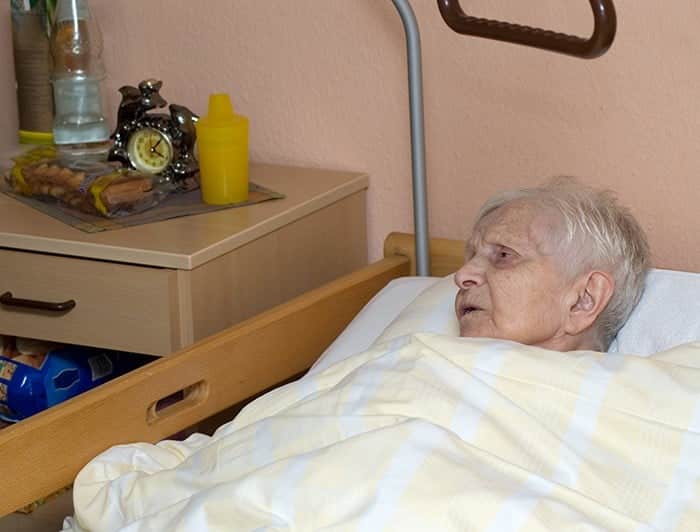
COVID-19 by the Numbers in Nursing Homes
As of July 2020, there have been more than 4.0 million confirmed cases of COVID-19 in the United States, and there have been 142,000 deaths. As of the same date, there have been 81,000 confirmed cases in Ohio, and 3,200 deaths. Ohio is the 16th hardest hit state when ranked by number of confirmed cases. Across the country and within Ohio, nursing homes have been a major source for the spreading of the virus. As of July 7, 2020, nursing home residents and workers accounted for 10% of all US confirmed cases (296,000 cases) and 42% of all US deaths (55,000 deaths). As of July 23, 2020, in Ohio, nursing home residents accounted for nearly 8000 cases of COVID, and staff members accounted for roughly 3,700 cases.
Nursing homes are major sources of the virus because they house particularly vulnerable populations in close quarters. For these reasons, the conditions of a nursing home itself can be conducive to spreading COVID. Patients at nursing homes are often “frail” and sometimes suffer from dementia, “a condition that can make social distancing difficult to enforce.” Some nursing homes have also neglected patients who have already contracted COVID. In one nursing home, employees failed to monitor and document whether an infected “patient at risk of weight loss and dehydration was consistently consuming food and fluids,” and by doing so failed to follow a prescribed care plan.
The Law May Shield Nursing Homes from Liability for COVID Cases
Whether nursing home residents contract COVID seems to depend largely upon which nursing home is in question. “The disparity in coronavirus cases is still a medical mystery: Why have some homes . . . had dozens of deaths while others have been able to contain the outbreaks?” Whatever the homes with more cases and deaths are doing in response to COVID might be the key to determining whether they’re liable for damages.
Groups that represent nursing homes have been lobbying for legislation that grants immunity from civil lawsuits. They argue that “nursing homes and front-line workers are responding to an unprecedented health emergency and deserve protection from lawsuits, particularly when medical equipment and tests are in short supply.” Groups that represent patients argue against such legislation. According to them, “even before the pandemic, many [nursing] homes had been unable or unwilling to meet basic health, safety and staffing standards set by the federal government . . . [and] could use immunity to evade long-standing liabilities.”
Roughly 20 states have “issued . . . emergency order[s] granting nursing homes immunity from most lawsuits during the coronavirus pandemic.” State governments have blocked affected residents and family members from receiving damages from COVID in civil law cases against nursing homes in court. They have also blocked family members from access to information about patients’ final days in nursing homes, and gathering such information is particularly difficult because visitation during COVID has often been limited or banned altogether. A representative of the New York State Governor gave the following rationale for granting immunity to nursing homes: “[i]f we had not done this, we never would have had enough front-line-health-care workers working and taking care of patients.”
The Ohio Senate passed a bill that protects nursing homes (along with other businesses) from civil lawsuits related to COVID. The bill is called the “Good Samaritan Expansion Bill.” This bill is not yet in its final form: it will go “back to the Ohio House for further consideration on amendments.” Like in other states, though, lobbyists are arguing for an amendment that removes nursing homes from the list of immune businesses. Whether and when nursing homes will be immune under the final version of the Ohio law is still up for debate.
Exceptions to the General Rule: When the Law Does Not Shield Nursing Homes from Liability for COVID Cases
It could be the case, though, that exceptions to immunity will remain, even if nursing homes are still covered by the law. Similar laws in Connecticut and New York, for example, do not protect nursing homes in cases of gross negligence. The laws in most states do not protect nursing homes from allegations of criminal activity or willful misconduct, either.
What You Should Do if You or a Loved One Under the Care of a Nursing Home Has Contracted COVID
Because of the exceptions to this general immunity in Ohio (if nursing homes end up being immune in Ohio), it is likely that nursing homes can still be held liable in a court of law for cases of COVID within their patient populations.
If an attorney can show that a patient has contracted COVID and a nursing home is not immune to civil liability, then an Ohio court will find that the nursing home needs to compensate the patient or the patient’s family. Another possibility is that a nursing home might settle with the patient or the patient’s family outside of court.
Contact an Experienced Nursing Home Neglect Attorney for Help
If you or a loved one has contracted COVID while in the care of a nursing home, you should contact an experienced nursing home neglect attorney at Dworken & Bernstein to discuss your legal rights. An attorney will be able to help you to understand whether the nursing home is immune in your case and which kinds of remedies are available to you.






